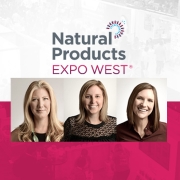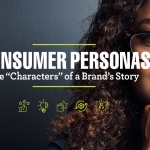The ABC’s of CBD: Why It’s Growing & How to Know if It’s Right For Your Business
A Star Ingredient Thousands of Years in the Making
Food ingredient breakthroughs have refashioned how mankind has prepared, stored and enjoyed foods since the beginning of time.
For example, in the late 1970s and early 1980s, global trade conditions brought about a revolutionary change to sweeteners used in America. Cane sugar prices skyrocketed, and federal and state governments installed subsidies and market measures propelling corn-based sweeteners to the forefront of food and beverage use.
Love it or hate it, the introduction of High Fructose Corn Syrup became a game-changer in the food and beverage industry just decades ago, with formidable implications today.
Fast-forward to 2022, and the ingredient that is at, or near, the top of virtually every marketer’s wish list is not a “newly discovered” ingredient at all. It’s CBD.
That’s right – unless you’ve been living under the proverbial rock, you are well aware that the humble hemp plant, tracing back to civilizations thousands of years ago, now has the attention of virtually every food, beverage, skin care, beauty care, health care and sports industry entity you can imagine. But why?
The “Why?” Behind CBD’s Growth
A perfect convergence of increased education/awareness, shifts in government policy and the emergence of new consumer macro trends is propelling a surge of interest in CBD.
Though the FDA maintains its long-held position that CBD can’t be sold in conventional food or dietary supplements, governments around the world are beginning to relax restrictions and strike down laws prohibiting the use of CBD. And many key players are speculating that a long-promised hearing on various bills to allow CBD in foods and supplements could occur here in the U.S. at any time.
Once considered taboo in Western society, CBD is now garnering a huge following among consumers because of its perceived benefits and its non-impairing, non-euphoric properties. Increased messaging on wellness from industry, government and social media, coupled with a growing recognition and awareness of their own personal health-related needs, have consumers turning to CBD to help with a range of issues including energy, focus, pain management, mental health, stress, sleep, overall wellness and more.
But health benefits are not the only reasons why the cannabinoid is on virtually every product developer’s workbench. Not to be confused with its still federally illegal, psychoactive cousin THC, CBD is an ingredient with real “rock star status” because it stands firmly at the convergence of several macro trends like holistic wellness, sustainability and natural/plant-based ingredients. (CBD comes from hemp, so it delivers a big win in consumers’ minds because it is a highly renewable plant-based resource with virtually zero-waste).
The Future of CBD
In the words of CBD expert Shelly Tallabas, Co-Founder/CEO of Vivid Integrated Solutions, “CBD is and will continue to be very popular in the health and wellness space as consumer interest in holistic well-being and natural remedies continues to grow. With CBD being a natural ingredient with potential health benefits and a myriad of options to fit consumers’ lifestyles, the range of use for CBD is virtually limitless. This is just the beginning.”
And the numbers certainly support Shelly’s viewpoint. In fact, according to Vantage Market Research, the total Global Cannabidiol (CBD) Market is estimated to reach USD 47.22 Billion by 2028, up from USD 4.9 Billion in 2021, at a compound annual growth rate (CAGR) of 21.3%
Does this mean that U.S. consumers are ready for “everything CBD?” Not quite.
Despite growing popularity, there is still a need for more education to overcome fear, lack of knowledge and years of social conditioning regarding CBD. The tipping point is almost here (and will likely come with FDA direction), and ever-increasing acceptance, paired with changing U.S. laws, promises to open the door for the cannabinoid to be a game-changing ingredient of years to come.
How to Decide if CBD is Right For Your Business
Should every company jump on the CBD bandwagon? Certainly not. But it does mean that every company should take a moment to intentionally consider whether it is right for their brand.
Begin by asking yourself things like…
-Is CBD a consideration for your brand’s consumer target?
-Does your brand live at the intersection of wellness, sustainability, and plant-based ingredients?
-How might your brand be more relevant with CBD in the mix, or at least operating in adjacency to CBD products that speak to holistic wellness?
These are just some of the questions you should consider to help you determine if CBD should play a role in your portfolio.
And for those that do decide to pursue it, it’s important to consider not only how to best tap into the CBD trend but also how to bring something unique, ownable and differentiated to the party.
Interested in further exploring whether CBD might be right for your business—and how to leverage it to successfully grow your business? Contact Maggie Ledbetter; she’d love to discuss how Seed and Burke can help!
Troy Geesaman is SVP, Strategy at Seed, where, as a natural connector, he brings together ideas and action; learning and context; humanity and leadership.
Maggie Ledbetter is an Account Executive, Client Services at Burke, Inc. where she partners with brands to illuminate insights, crack tough data riddles and design and execute learning plans that drive strategy and propel business to new heights.
Edited by Adam Siegel. In addition to being the Editor of The Accelerator, Adam is VP, Creative at Seed Strategy, where he draws upon his diverse experience in advertising, research and innovation to craft breakthrough creative and winning concept copy.
Connect with us! Follow Seed Strategy on our LinkedIn, Twitter, Facebook and Instagram pages.











